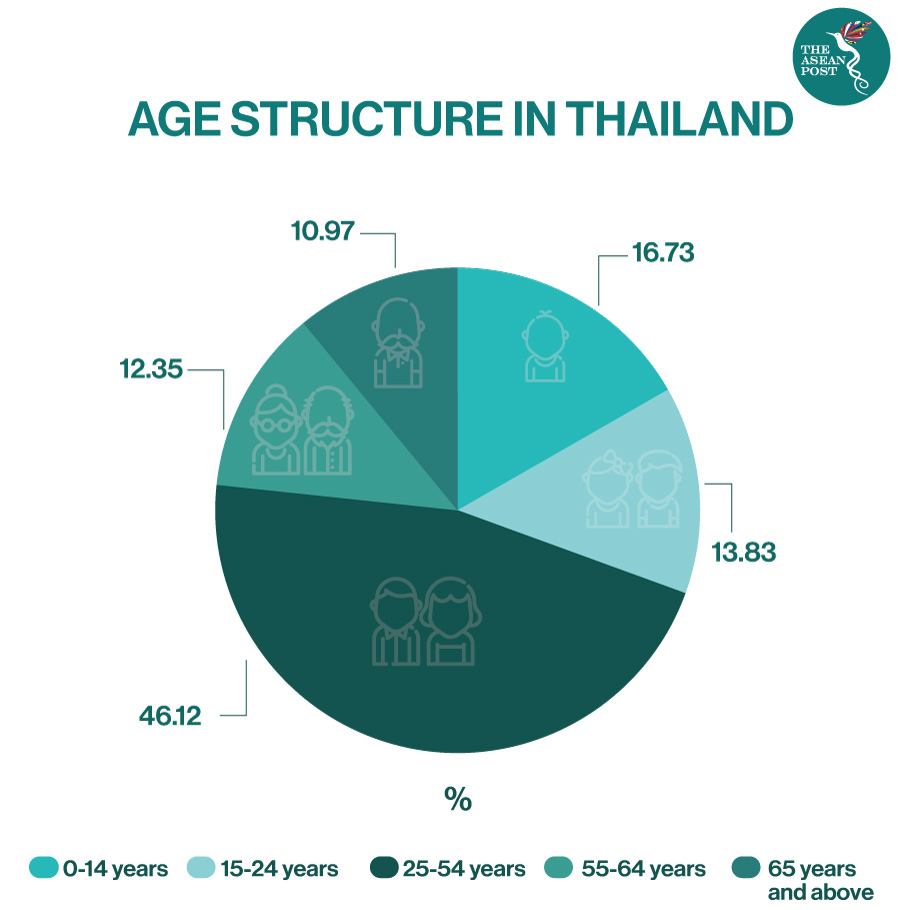A 2019 study on Thai media habits conducted by the National Broadcasting and Telecommunications Commission showed that television (TV) as a medium will still be in widespread use in Thailand for the next decade. The study gauged opinions from 10,000 households nationwide in five regions covering 26 provinces.
The findings might be unexpected to some as print media loses popularity and younger generations move online, showing less loyalty to individual media outlets or programmes.
Nevertheless, to those familiar with the situation in the Land of Smiles as well as the habits of people from different generations, the results of this study may be unsurprising.
As reported in several previous articles, due to low birth rates and a rise in life expectancy, Thailand has become an ageing country. While the younger generation would prefer to get their media fix from the internet, TV is still an important part of the lives of the older generation. This is especially true for those born between 1946 and 1964, known as the Baby Boomer generation, according to the Pew Research Center’s definition. TV was officially introduced in Thailand in 1955.
Aside from the baby boomers, the National Broadcasting and Telecommunications Commission also looked at younger generations including Generation X (born 1965 to 1980), Generation Y (1981 to 1996) - also known as Millennials - and Generation Z (1997 to the present) – also known as Post-Millennials.
The study found that many of the younger people in Generation Y and Z are moving online. Meanwhile, Generation X is split between more traditional media patterns of behaviour and varied usage of new media.
Print media is the least popular genre among consumers, while motion pictures are the most popular, according to 85.9 percent of respondents.

Making The Move
Despite the fact that a large number of Thais are still watching TV, it would be a mistake for advertisers to believe that this cannot change. A study by the World Economic Forum (WEF) found that in western countries, 70 percent of elderly people are now connected to the internet.
A report by the Asian Development Bank (ADB) titled, “The Asian Economic Integration Report 2019/2020 (AEIR): Demographic Change, Productivity, and the Role of Technology” found that adopting technology policies that improve the health, skills and labour of elderly people would be beneficial for Asia as well as economies in the Pacific region.
“The aging trend is irreversible in much of Asia and the Pacific, but governments could turn that into a ‘silver dividend’. Today’s elderly is better educated and healthier than in the past. The right policies on technologies could extend working lives, generating a substantial contribution to the overall economy,” ADB chief economist, Yasuyuki Sawada said in the report which presented the role of technology in boosting the productivity of aging economies.
The National Broadcasting and Telecommunications Commission study also found that the financial background of media users had a bearing on their usage patterns with high-income individuals more susceptible to online media offerings.
Meanwhile, the Thai government has agreed to have an “active ageing” plan as part of its national agenda. The plan aims to provide and upgrade vocational skills for those over 60, in addition to looking at job creation suitable for that age group.
“The plan also urges employers to hire more elderly staff by providing benefits, as well as encouraging seniors to sign up for the National Savings Fund (NSF) to promote sustainable financial management in old age,” deputy government spokesperson Ratchada Thanadirek was quoted as saying.
It remains to be seen if Thai baby boomers will give up their beloved TVs like those who came after them seem to be doing. Nevertheless, as the country fully embraces the Fourth Industrial Revolution, with its Thailand 4.0 plan looking to be on track, odds are that this is what will eventually happen.
The National Broadcasting and Telecommunications Commission study was introduced to the media by its vice chairman, Natee Sukonrat, and was conducted in association with Thammasat University.
Related Articles:
